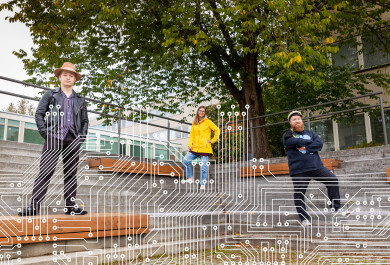University’s New Associate Professor of Materials Engineering Specialises in Battery Technology
The new Associate Professor of Materials Engineering Pekka Peljo focuses in his research and teaching on battery technology, including the study of cost-effective and environmentally friendly materials that can be utilised in energy storage.
The University of Turku has been appointing new professors for the new degree programmes in engineering, and the fourth expert to join them is Associate Professor in Materials Engineering Pekka Peljo. He has started working in April, first as a part-time Senior Researcher, starting in his position as a full-time Associate Professor in the autumn 2020.
Peljo’s research centres around batteries used in the storage of renewable energy. These batteries are not designed to be moved and used in e.g. electric cars because of their poor energy density. Peljo has focused on studying which kind of materials could be used in producing environmentally friendly and cost-effective batteries for energy storage.
Peljo adds that as an associate professor, he wants to teach comprehensively about all types of batteries. Various types of batteries exist to be used for different purposes, and different applications have different requirements for the batteries.
– In Finland, battery technology has largely focused on applications of mobile energy storage, but they have not been a prominent area in my research.
The materials used for the production of the batteries also varies depending on the purpose for which the battery is used. New materials can be discovered utilising e.g. computational tools such as machine learning. Among other things, Peljo’s research has focused on developing more common material, e.g. organic materials for the batteries used in the applications of renewable energy.
– In the case of for example electric cars, the most important thing is the energy density of the battery and the distance the car can travel with the battery. But when we are talking about applications of renewable energy, the capacity of the battery is not as important, but the important thing is its price during the whole life cycle of the system, Peljo explains.
Peljo completed his doctorate in technology in Aalto University in 2013. He has worked five years in Switzerland in École Polytechnique Fédérale de Lausanne (EPFL) and after that, a couple of years as an Academy Research Fellow in Aalto University.
The professorship of battery technology in the field of materials engineering is jointly funded by the city of Salo, Lounea, Osuuspankki Lounaismaa, Someron säästöpankki, SSO, LähiTapiola Etelä, Juho Leino Foundation, Salo Chamber of Commerce, Valmet Automotive, Kesko Oyj, Finnfoam, Salo Expo, Fortum, and the Juha Punta foundation.



